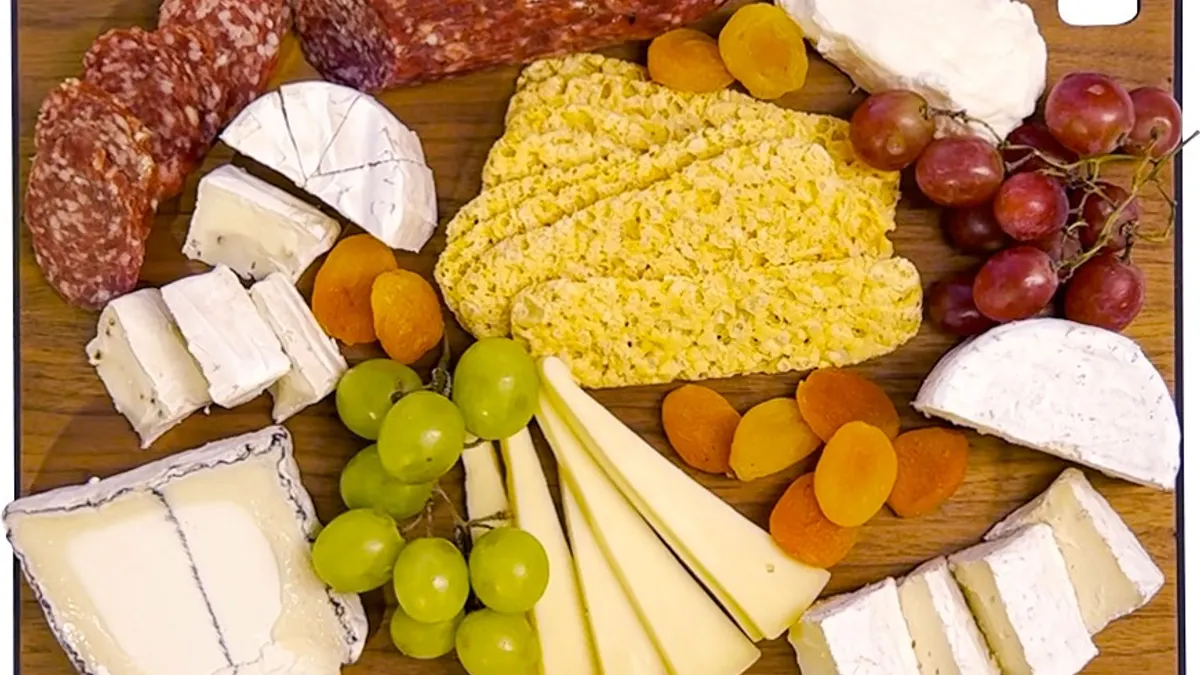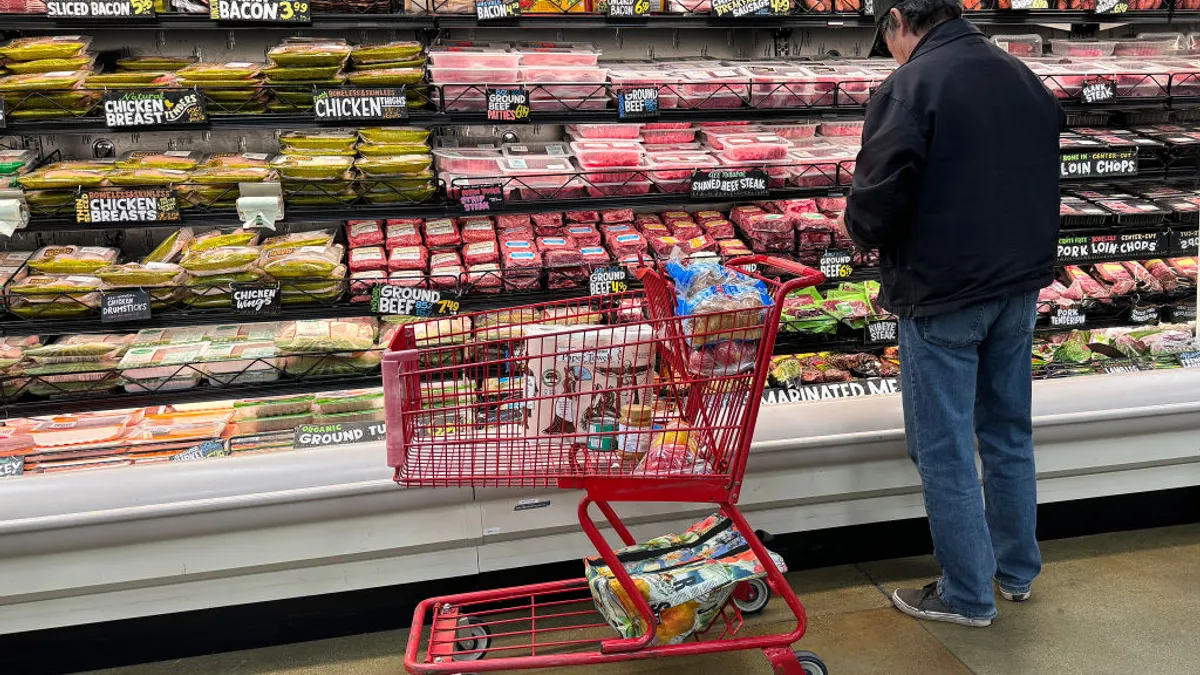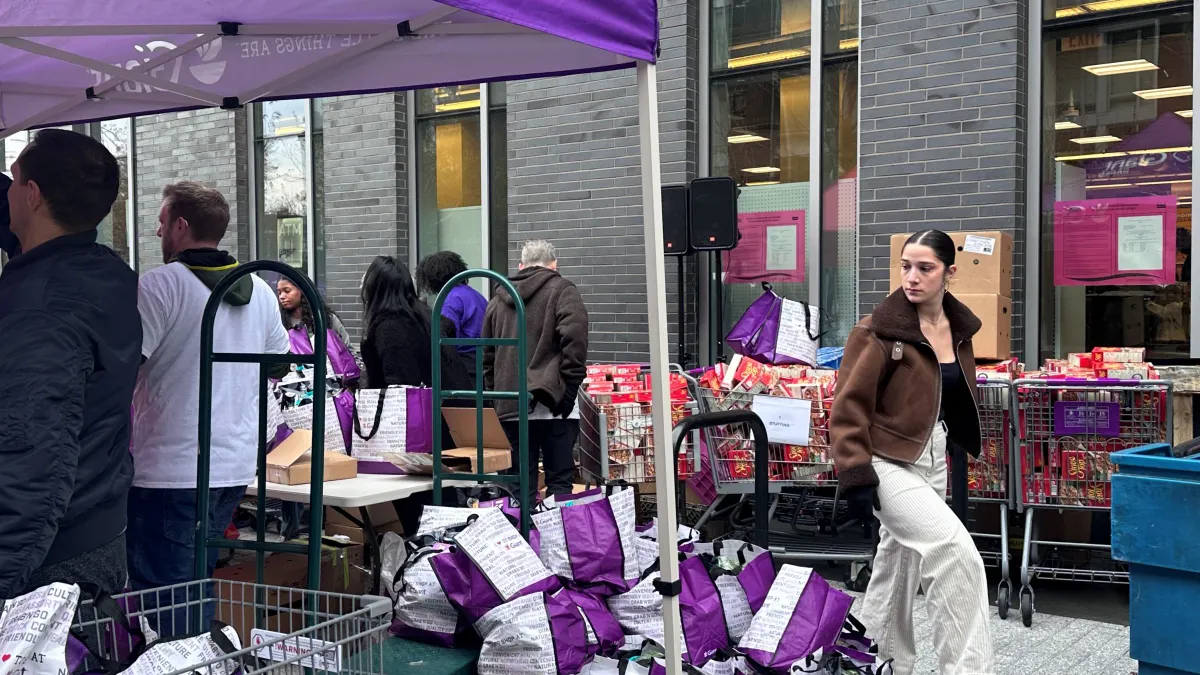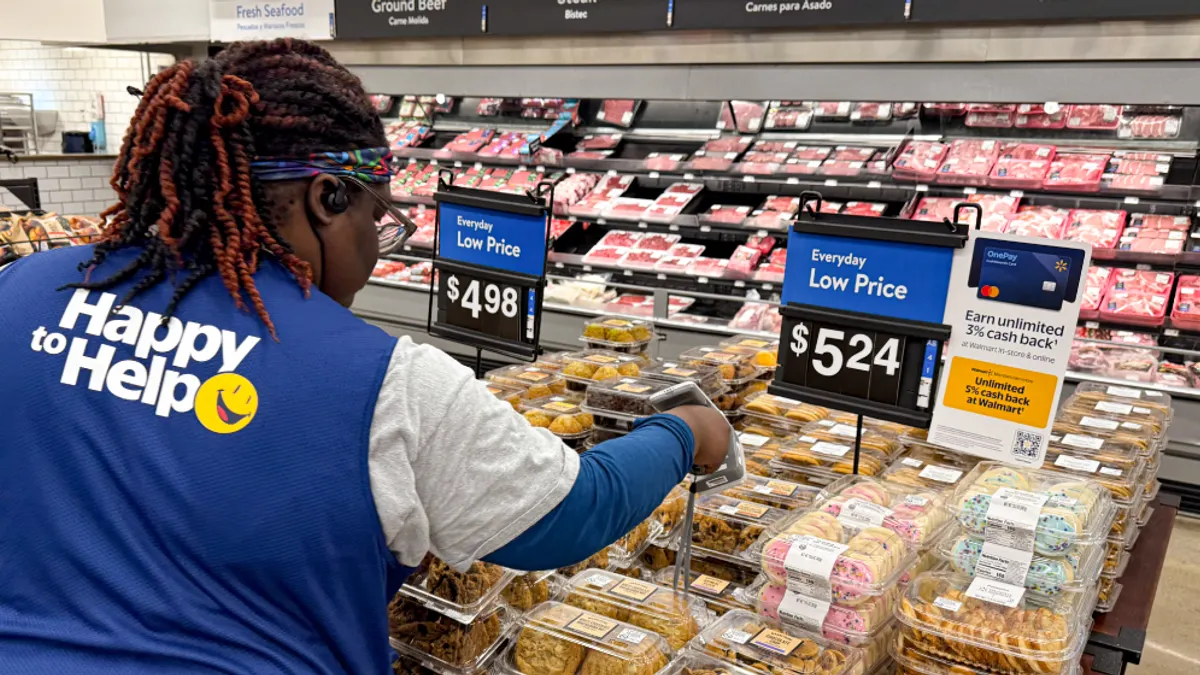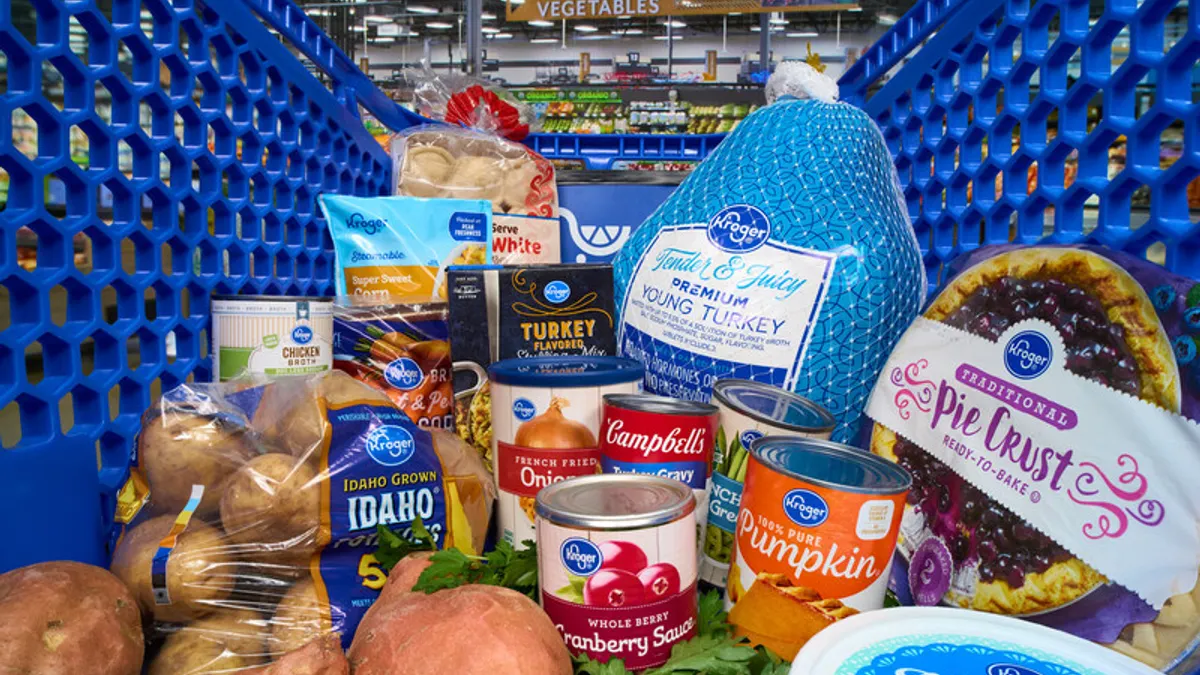The past several years have been turbulent ones for The Fresh Market. After growing to nearly 200 locations during the heyday for premium specialty stores — the same period that turned Whole Foods into a national powerhouse — the grocer struggled against mainstream chains and discount stores that offered organic apples and fair trade chocolate bars for less. In 2016, Apollo Global Management bought the grocer, ending a six-year run on the stock exchange, while company leadership sought to cut costs and boost store traffic.
The Greensboro, N.C.-based grocer lowered prices and added hundreds of everyday items like baby products and household cleaners. It also closed down stores in several states. But the changes didn't make much headway, and last summer CEO Rick Anicetti stepped down suddenly.
Now, under CEO Larry Appel, a Winn-Dixie veteran who took the helm a year ago, The Fresh Market is looking to steady the ship. That includes ending its drift towards the conventional side of the industry and embracing its roots as a specialty retailer. In an interview with Grocery Dive, chief marketing officer Mary Kellmanson says the company aims to become a more "European style" grocer, starting with a new store in Charlotte — the only new store it's opening this year.
Grocery Dive: What is Fresh Market’s outlook for company growth and what do you have planned going forward?
Kellmanson: Our plan really is and has been over the last year getting back to our specialty roots. We started off as a specialty store with a focus on fresh products in that more European style of shopping, where you come in every day and get the great fresh products that were either just baked for you or just picked for you and meat that was just cut. We are now taking things back and our focus has been on reinstating that product assortment and that guest experience in all of our stores.
Our merchandising teams, whom we think of as curators as opposed to category managers, are searching the world for the best products, whether it's the highest quality or best ingredient for cooking. They are then bringing that curated assortment to our stores for our guests to shop. So that has been a huge focus for us.
Our other big focus has been and will continue to be around helping guests with easy meal solutions. That is helping them by offering pre-prepped products with fresh ingredients so that they can quickly make a meal but still feel like it's something that they cooked for themselves and their family by having the convenience of portion sizing, chopping and marinating already done for you. All the way to fully prepared foods that people can just take home and heat or take home to eat directly.
Grocery Dive: Are these products you already offer now or are you still working on them?
Kellmanson: We change them seasonally, so now as the weather is getting colder we're getting more into seasonal items and pastas and starting to get away from the steaks and the grilling products. So we're starting to see a changeover in a lot of our product assortment for meals.
Grocery Dive: Talk about your newest store in Charlotte.
Kellmanson: Our store in Charlotte really takes all of these things that we’ve been working on for the last year and sets them immediately into that store. As you walk in, you walk right into our deli department where you have these great options like side dishes, sandwiches and meals that you can eat right away or that you can take home and heat. We also have a lot of ready-to-cook meals with pre-prepped portions and we are bringing back our focus on these wonderfully curated assortments of products, particularly in our dairy section and our bulk candy and coffee section.
Really, that's always been a mainstay for us. When we started the company, we had a lot of bulk coffee, bulk nuts, a lot of bulk candy. We were really known for our fun, interesting candy assortment. Over time things changed a little bit and we've been reinvigorating that part of our store and bringing those products back in, both in everyday assortment and a great seasonal assortment.
Charlotte is a very important market to us. It is about an hour and a half from our home base here. We really started as a North Carolina company and as we grew out from Greensboro, Charlotte and Raleigh are the two areas we spread to first as we grew. So it's always been an important market to us.
Grocery Dive: What does this mean for future stores?
Kellmanson: We are definitely bringing a lot of the assortment, the display space and the way we're presenting the products in Charlotte to all of our other stores. Every store is a little bit like a snowflake. They're all unique. So it's how we take these products and curate them for the market because we're in Chicago, we're in Massachusetts, we're in D.C., we're in Louisiana, we're in Miami. So we curate the assortment for those stores and we present them a little differently because they all have slightly different customer populations and [the stores'] physical shape is also different. What we're doing in Charlotte was an opportunity we built from the ground up. We were able to take a bunch of ideas and put them in all at once, but those are definitely being spread all throughout our chain
Grocery Dive: What opportunity do you see in the fresh food space as a retailer?
Kellmanson: I've been in the grocery business for a long time and I honestly think the opportunity is really around helping people with meals. It is something that never seems to go away. What has changed over time is the emphasis on fresh food. Overall, [shoppers] want something that is fresh and freshly prepared but fits into their lifestyle.
The other thing is the quality of the ingredients. Our access to information is incredible and gets more and more incredible every day. People have really educated themselves about the quality of food in a way that didn't exist 20 or 40 years ago. They want and demand that information on food quality. For example, prime beef is the highest grade of beef and our prime beef business continues to grow tremendously because people understand and value the quality of the product. Maybe they have been exposed to it at a steakhouse but now they understand that's something they can have access to and want access to in their food shopping experience. We continue to see growth in quality and then also in interesting and unique items.
We're really finding that in produce, too. Whether it's purple Brussels sprouts or purple carrots, it makes the dinner plate a little more fun and interesting. Our curators, as opposed to merchants, are going out and finding these products and bringing them in.
Grocery Dive: What is the ultimate goal of this turnaround strategy and what other steps are you taking to get there?
Kellmanson: The steps that we're taking are refocusing on our specialty roots and curating the assortment of specialty, high-quality and unique items. We've also been focusing a lot on the guest experience in the store and on insuring that we have a really high level of service. We want employees to be friendly and helpful in the stores, but we continue to work on their knowledge of these different unique products. They not only know about this autumn harvest apple and know what it tastes like because they've tasted it, but they also make sure they're offering you a chance to sample it and engage with you as a guest in the store. All of that is what's going to continue to grow our business and increase people's loyalty to our brand, because we're delivering on what they're really looking for. That's probably the key to any turnaround.
Grocery Dive: What about Florida, a state that's seeing retail store growth and where you have 46 stores? Is this a market where you could expand?
Kellmanson: Florida is probably one of our denser markets and has always been a very important market to us. It's getting a lot more attention now from other grocery stores and grocery chains. But I also think there's a lot of people living in Florida, so there's definitely an opportunity for us to continue to grow there and to continue to differentiate ourselves. We offer a really a different value proposition than a lot of other food store chains in that market or in a lot of markets. We think we have something unique to offer and it will continue to be important to us.
There was a period of time when we had grown westward and now we've brought it back to more southeast, northeast and a little bit in the Midwest Chicago area. I think our focus is really on the current footprint we have now and continuing to drive our guest's engagement and sales in the markets that we're in.






